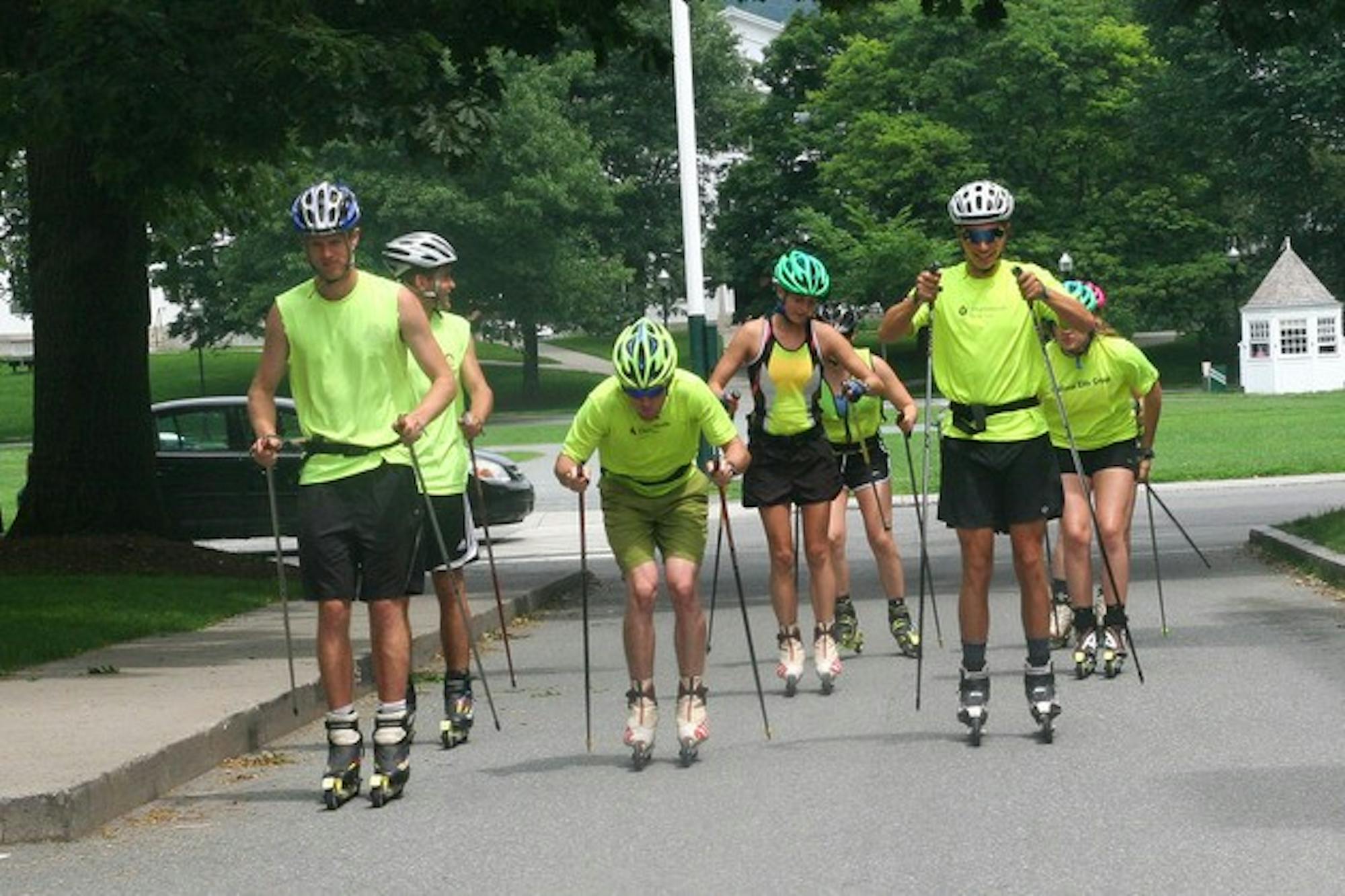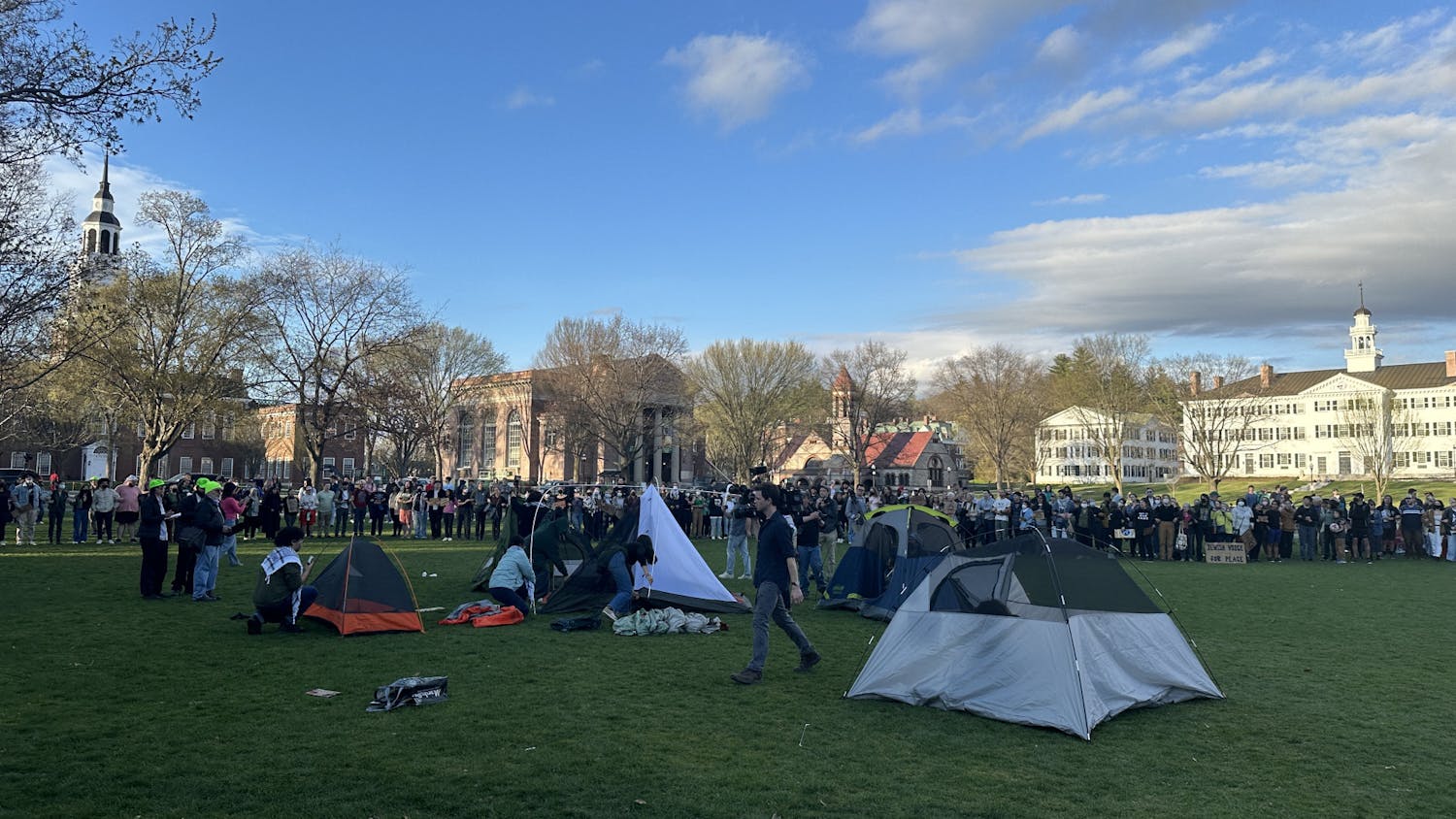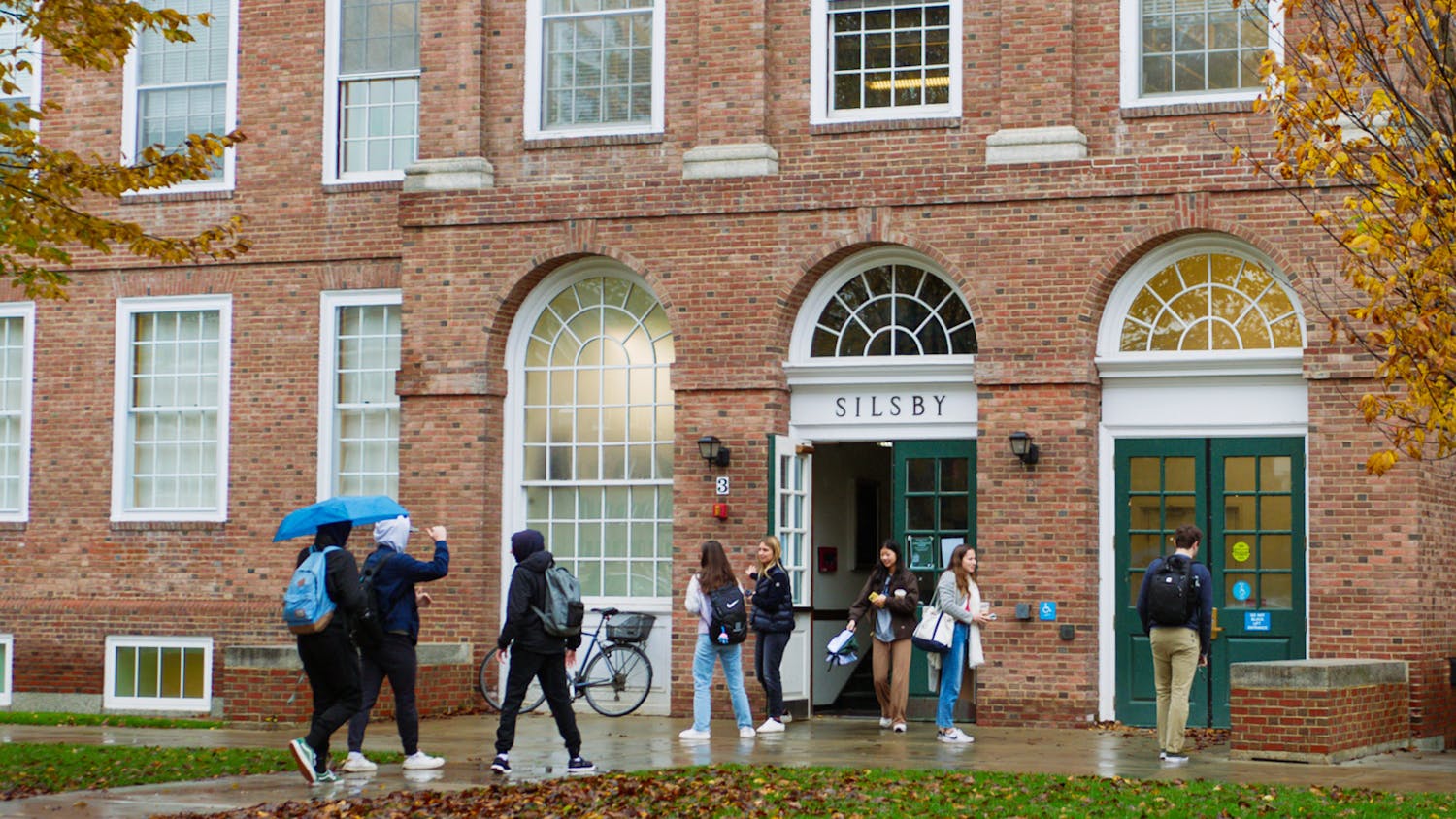NCAA rules in bylaw 17 prohibit organized practices in all sports, limiting training options to workouts that can be monitored by staff members.
For members of the men's and women's cross country teams, practice is simply a run through Hanover or the Upper Valley. Neither team has organized practices over the summer, but runners are still expected to train on their own and report back to coaches.
"In the summer we focus more on long distance, easy running to build endurance and build up the most miles over the summer," runner Joe Carey '15 said.
Conversations with coaches are sporadic, keeping athletes on track and guiding them with structured training.
"We're pretty much totally independent," Carey said. "We check in with our coach by email pretty much every other week."
Runners can enjoy the lessened intensity of summer training by taking up other activities. Although both the men's and women's coaches live locally, they do not coach or directly monitor summer workouts.
"There are no organized team practices, but we run together because we enjoy running," runner Alison Lanois '15 said.
Even on off-days mandated by the NCAA, team members often run together on optional runs, preferring the bonding potential that these opportunities present.
"It's a good way for everyone to get together and hang out as a team," Carey said.
Some, such as the Nordic ski team, have to improvise for summer training. Without a hint of snow, skiers train with poles and bike helmets and roller skates attached to skis. The "roller skis" mimic regular ski strides and allow the team to cruise through the roads of Hanover, albeit outfitted in neon reflectors to ward off distracted drivers.
The contraptions help build strength and fitness.
"The roller skating is just like skiing but with wheels," Nordic skiier Julia Harrison '15 said.
The Nordic ski team runs optional practice at least five days a week in addition to two strength training sessions.
"We do a lot of running and a lot of technique work with our polls," Harrison said.
With only three riders on campus this term, the equestrian team has a more relaxed summer program. Athletes have varying involvement with the team over the summer, rider Emily Estelle '15 said.
"We're doing team lift with the lift coaches which is optional but encouraged," she said. "Everything in the summer is basically what you want it to be. You can do a lot, you can do nothing."
This relaxed atmosphere differs from fall season, when the team and has four practices a week on horseback in addition to lifts and other workouts.
For team sports, however, summer training tends to focus on workouts to build strength and endurance.
The men's hockey team spends most of the summer training off the ice, Rick Pinkston '15 said. For those on campus, this includes lifting at the weight room four times a week and going on runs.
"It's nice having structured lifts and conditioning runs with our [strength and conditioning] coach Bob Miller," he said. "It seems to be very beneficial because everyone is on the same plan."
The small training group is not all downside. Players on campus benefit from the additional personal attention from coaches.
"It's a smaller group and you get more feedback from coach about what you need to do individually to get stronger," Pinkston said.
The most decentralized summer program belongs to the baseball team. Players, even members of the Class of 2015, are sent home to train and compete in summer collegiate baseball leagues.
Infielder Thomas Roulis '15 is currently in Montpelier playing for the Vermont Mountaineers of the New England Collegiate Baseball league with teammate Matt MacDowell '15.
While Roulis appreciates the ability to build on the momentum of the spring season, he said it's hard to be split from Dartmouth teammates.
The NCAA restricts the number of Dartmouth players that can play on a single summer team, effectively splitting the team up across the country.
Still, Roulis said he appreciate the enjoys facing new competition outside the Ivy League.
"It's great to stay sharp and see live pitching because we never want too much downtime," he said.
Heather Szilagyi contributed reporting.




